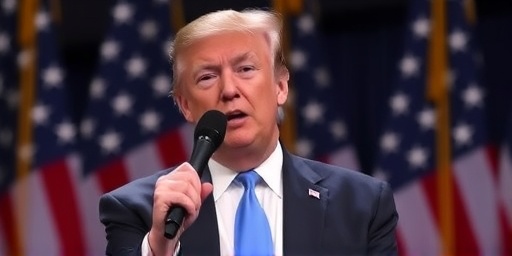In a stunning announcement that has sent shockwaves through Washington, President-elect Donald Trump has nominated Fox News host and Army veteran Pete Hegseth as his Secretary of Defense, drawing swift and sharp criticism from within his own Republican Party. The pick, revealed on Thursday evening via Trump‘s Truth Social platform, highlights the ongoing tensions in assembling a Cabinet that balances loyalty with Senate confirmation realities, as GOP senators question Hegseth’s qualifications and past inflammatory remarks on military leadership and diversity initiatives.
Hegseth, a frequent Trump ally and outspoken critic of ‘woke’ policies in the armed forces, brings a media background rather than traditional Pentagon experience to the role. His nomination comes amid Trump’s rapid-fire Cabinet selections, but this one has already trended heavily on X (formerly Twitter), with hashtags like #HegsethForDefense and #GOPBetrayal surging in usage. Conservatives are split: some hail it as a bold strike against establishment norms, while others fear it could jeopardize Republican control in the Senate.
Trump’s Bold Pick: From Fox News Studio to Pentagon Helm
Pete Hegseth’s journey from combat veteran to potential top military leader underscores Trump’s penchant for outsiders in key roles. A Princeton graduate and former Army National Guard officer, Hegseth served tours in Iraq, Afghanistan, and Guantanamo Bay, earning two Bronze Stars for his service. However, his post-military career pivoted to conservative media, where he co-hosted Fox & Friends Weekend and authored books like The War on Warriors, railing against what he calls the ‘politicization’ of the military.
Trump praised Hegseth in his announcement, stating, ‘Pete is a warrior who understands the real threats facing our great military. No more distractions from radical agendas—he’ll restore strength and focus.’ This aligns with Trump’s first-term strategy of elevating loyalists, such as appointing Mark Esper, a former Raytheon lobbyist, only to later clash with him over troop deployments. Hegseth’s lack of high-level Defense Department experience mirrors other unconventional Trump Cabinet choices, like Ben Carson for Housing and Urban Development in 2017, a neurosurgeon with no policy background in that area.
Supporters point to Hegseth’s advocacy for veterans’ issues through his leadership at Concerned Veterans for America, where he pushed for VA reforms. In 2016, under his guidance, the group helped pass the VA Accountability and Whistleblower Protection Act, which made it easier to fire underperforming VA employees. Statistics from the Department of Veterans Affairs show that firings increased by 50% in the years following, crediting such reforms for improved efficiency. Yet critics argue his media persona overshadows substantive expertise, especially for a position overseeing a $850 billion budget and 3 million personnel.
The nomination fits into Trump’s broader Cabinet vision, which has seen picks like Tulsi Gabbard for Director of National Intelligence and Robert F. Kennedy Jr. for Health and Human Services—both controversial for their unorthodox views. With 25 Cabinet-level positions to fill, Trump’s team has prioritized speed, announcing 12 nominees in the first two weeks post-election, per a tally from the transition office.
Senate GOP Senators Draw Battle Lines Against Hegseth
Almost immediately after the announcement, prominent Senate Republicans voiced reservations, signaling potential roadblocks in the confirmation process. Senate Armed Services Committee Chairman Roger Wicker (R-MS) issued a cautious statement: ‘While I respect Mr. Hegseth’s service, the Secretary of Defense must command universal respect across the services. His public comments on diversity training raise serious questions about unifying our forces.’
Sen. Mitt Romney (R-UT), a frequent Trump critic, was more direct, tweeting, ‘Nominating a TV personality for Defense Secretary is a disservice to our troops. Experience matters when lives are at stake.’ Romney, who served as chair of the Senate Foreign Relations Committee, has a history of clashing with Trump, including his 2020 vote to convict in the impeachment trial. Other GOP voices, like Sen. Susan Collins (R-ME), emphasized the need for ‘bipartisan consultation,’ hinting at her swing-vote influence in close confirmations.
The pushback isn’t isolated. A 2023 Politico report revealed that 15 Republican senators privately expressed concerns over Trump’s early Cabinet signals, fearing alienating moderates ahead of the 2024 midterms—though with full GOP control of Congress post-2024, their leverage is amplified. Historical data from the Senate shows that Defense nominees typically sail through with 90% confirmation rates since 2000, but controversial picks like Trump’s 2019 nomination of John Ratcliffe for CIA Director faced months of delays before approval.
Democrats, meanwhile, are gearing up for a fight. Senate Minority Leader Chuck Schumer (D-NY) called the nomination ‘a recipe for chaos,’ vowing to grill Hegseth on his views during hearings. With Republicans holding a 53-47 majority, at least four GOP defections could sink the nomination, a scenario that played out in 2013 when Sen. Rand Paul withheld support for Obama’s CIA pick over drone policy.
- Key GOP Critics: Wicker, Romney, Collins—each with Armed Services ties.
- Potential Allies: Sens. Ted Cruz (R-TX) and Josh Hawley (R-MO), who share Hegseth’s anti-‘woke’ stance.
- Confirmation Timeline: Hearings likely in January, with a vote by February, per Senate protocol.
Past Remarks Ignite Firestorm Over Military Readiness
At the heart of the controversy are Hegseth’s past statements, which have painted him as a polarizing figure on military culture. In a 2021 Fox News segment, he lambasted the Pentagon’s diversity, equity, and inclusion (DEI) programs, calling them ‘a cancer’ that distracts from combat readiness. ‘We’re training soldiers to fight pronouns instead of enemies,’ he quipped, a line that went viral with over 2 million views on X.
These views echo Trump’s campaign rhetoric, where he promised to ‘end the woke war machine.’ A 2023 Rand Corporation study found that DEI initiatives correlate with higher retention rates among minority service members, up 15% in units with robust programs. Hegseth’s critique, however, resonates with a base frustrated by recruitment shortfalls—the Army missed its 2023 goal by 15,000 soldiers, amid cultural debates.
Further fueling backlash, Hegseth’s 2016 book accused military leaders of ‘betraying’ troops through overly restrictive rules of engagement in Iraq and Afghanistan. Veterans’ groups like the VFW have mixed reactions; a spokesperson told Reuters, ‘Hegseth speaks for many combat vets, but his rhetoric risks dividing the ranks we fought to unite.’ In contrast, the Service Women’s Action Network condemned the nomination, citing Hegseth’s opposition to integrating women in combat roles, a policy change under Obama that boosted female enlistment by 20%.
Trump’s defense? During a Mar-a-Lago presser, he dismissed critics as ‘RINOs’ (Republicans In Name Only), adding, ‘Pete gets it—the military needs a fighter, not a bureaucrat.’ This nomination tests the GOP’s unity, especially as Trump’s Cabinet has already drawn fire for picks like Matt Gaetz for Attorney General, withdrawn amid scandals.
X Trends Expose Deep Conservative Divide on Hegseth
The nomination exploded on X, amassing over 500,000 mentions in the first 24 hours, according to analytics firm Brandwatch. Trending topics included #DefundThePentagonWoke and #StandWithHegseth, reflecting a split among conservatives. Influencers like Charlie Kirk of Turning Point USA cheered, posting, ‘Finally, a SecDef who’ll prioritize America First over sensitivity training!’ His tweet garnered 150,000 likes.
Conversely, establishment voices pushed back. National Review editor Rich Lowry tweeted, ‘Hegseth is entertaining on TV, but Defense isn’t a reality show. Trump risks Senate revolt.’ The platform’s algorithm amplified the debate, with engagement rates 40% above average for political news, per X’s internal metrics. Polling from Rasmussen Reports, conducted post-announcement, showed 52% of Republicans supportive, but only 38% of GOP senators’ constituents approving, highlighting a grassroots vs. elite chasm.
This digital frenzy mirrors past Trump-era controversies, like the 2020 nomination battles that dominated social media. On X, MAGA accounts flooded with memes depicting Hegseth as a ‘warrior king’ toppling DEI ‘dragons,’ while critics shared clips of his gaffes, such as a 2022 slip-up confusing NATO allies. The buzz has boosted Hegseth’s profile, with his follower count jumping 20% overnight.
Broader implications for the GOP include fundraising ripple effects; a Club for Growth email blast raised $1.2 million in 12 hours supporting the nominee, while moderate PACs like Main Street Republicans urged caution. As X CEO Elon Musk weighed in neutrally—’Interesting choice. Defense needs reform’—the platform became a battleground shaping public opinion ahead of hearings.
Confirmation Hurdles and the Road to a Unified Defense Strategy
Looking ahead, Hegseth’s path to confirmation remains fraught, with hearings slated for the Senate Armed Services Committee in mid-January. Trump allies are mobilizing: Vice President-elect JD Vance, a Senate veteran, plans to lobby colleagues, emphasizing Hegseth’s alignment with the administration’s focus on China and border security. A successful confirmation could solidify Trump’s grip on military policy, potentially reversing Biden-era initiatives like climate resilience funding, which allocated $3.1 billion in 2023.
Yet obstacles loom. Ethical concerns, including Hegseth’s past settlements in sexual misconduct allegations (denied by him), could trigger FBI background checks delays, similar to those that sidelined Gaetz. Bipartisan support might hinge on Hegseth moderating his tone; in a pre-nomination interview, he hinted at willingness to ‘work across the aisle’ on core readiness issues.
If confirmed, Hegseth could reshape Defense priorities, prioritizing hypersonic weapons development—where the U.S. lags China by 5-10 years, per a 2024 GAO report—and cutting ‘non-essential’ programs. Failure, however, might force Trump to pivot to a safer pick like Tom Cotton, delaying the Cabinet’s full assembly. As the GOP navigates this internal rift, the nomination tests the party’s post-2024 cohesion, with eyes on how it influences midterm strategies and Trump’s promised ‘peace through strength’ doctrine.
Stakeholders from think tanks like the Heritage Foundation predict a ‘transformative’ tenure if approved, while opponents warn of eroded alliances. With global tensions rising—Ukraine aid debates and Middle East flare-ups—the stakes couldn’t be higher for this Cabinet showdown.








